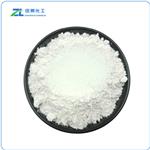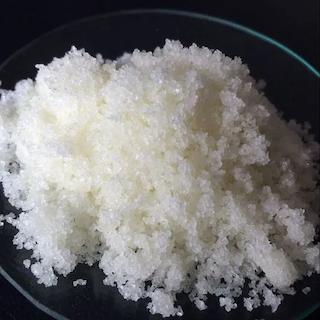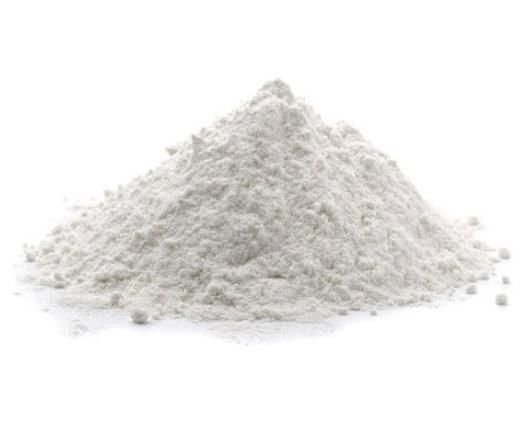Trypsin: Preparation and Application Studies
Apr 18,2023
General Description
Trypsin, an important pancreatic serine protease in mammals.[2] The main function of this enzyme is to hydrolyze proteins into smaller peptides or even amino acids.This proteolytic function of trypsin has been widely used in protein chemistry, proteomics and nutrition research. This function is influenced by the sources of enzyme, and environmental factors such as pH, temperature, and the presence of trypsin inhibitors in the enzymatic reaction medium. In food processing, trypsin or a trypsin preparation which usually contains other enzymes has been used to improve both the functional and nutritional quality of food proteins.[4]It like aspartic protease–pepsin and serine proteases, chymotrypsin and elastase are all some of the important digestive proteases isolated from fish viscera.[3]And it poses a great threat to the application of antimicrobial peptides. Trypsin preferentially lyses Lys and Arg cationic residues located at P1.[1]Due to its narrow specificity and selectivity, has been tremendously used in food technology, proteome analysis, modulating soy protein allergenicity, antihypertensive peptide production, as well as, a biomarker in diseases such as pancreatitis, cystic fibrosis etc.[2]

Figure1 Trypsin powder
Preparation
Trypsin was purified in four steps: ammonium sulfate precipitation, dialysis, ion exchange chromatography in DEAE-cellulose (diethylaminoethyl) column and affinity chromatography on p-aminobenzamidine Sepharose column. The crude enzyme extract was fractionated using saturated ammonium sulfate with constant stirring.Two fractions were collected (0–30% and 30-50%). The precipitate (30-50%) showing high trypsin activity was obtained by centrifugation at 18000g at 4°C for 30 min. The resulting pellet was resuspended in minimal volume of sample buffer; dialyzed overnight against repeated changes in the same buffer. Finally, the dialysate was filtered (0.45lm)polyethersulfone membrane, and stored for further purification.
The dialysed sample was loaded slowly (0.25ml/min) on a DEAE-cellulose column (0.5×5.5cm) equilibrated previously with the sample buffer for ion exchange chromatography. Unabsorbed protein was washed with the equilibration buffer (10mM Tris–HCl and 10mM CaCl2, pH 8.0) until the eluate had no detectable absorption at 280 nm. A step gradient of NaCl(100-500 mM NaCl in equilibration buffer) was used to elute the trypsin like enzymes from the column at a flow rate of 24ml/h. Trypsin activity of each fraction (4.5ml) collected was tested. Fractions showing highest trypsin activity were pooled (PF1) and applied on a benzamidine Sepharose 4 Fast flow affinity column (1.6×2.5cm, 5ml) at a flow rate of 0.25ml/min. This column was previously equilibrated with 10 mM Tris–HCl buffer (pH8.0) containing 10mM CaCl2 and 200 mM KCl. Trypsin was eluted from the column using 0.1M acetic acid. Fractions (2.5ml) eluted from the column was immediately adjusted to pH 8.0 adding 700 llof 1 M Tris-HCl buffer (pH9.0). The whole purification process was performed at 4℃ in a walk-in cold room.Finally, Trypsin was purified 35.64-fold with 4.97% recovery from the viscera of carp Cirrhinus mrigala (mrigal).[3]
Application
Trypsin also plays a major role in the digestion and assimilation of ingested food and activating all other pancreatic enzymes, including itself. The use of fish trypsin has increased remarkably because of its unique characteristic features. These include the stability and strong activity of fish trypsin under harsh conditions, such as temperatures of 38–70°C high pH value of 8–11 and in the presence of surfactants or oxidants. The purified trypsin has potential applications in detergent and food industry because of its thermal stability and alkaline nature.[3]
The proteolytic function of trypsin has been widely used in the protein chemistry, proteomics, and nutrition research.[4]In addition, Trypsin is also used in the food processing to improve the functional properties such as solubility, emulsification, foaming and gelling properties of food proteins, to improve the digestibility of vegetable and seed proteins. It is used to reduce the concentration of allergens in some foods and to produce protein hydrolysates and bioactive peptides that are used in infant formulas and for people with special health problems such as hypertension. In food science research, trypsin is used for the food protein sequencing, in-vitro determination of food protein digestibility. In combination with bromelain and rutin, trypsin is used for osteoarthritis. Trypsin is used to remove necrotic tissue and debris during wound and ulcer cleaning. Trypsin supplements may be used to remove dead tissue cells that remain after trauma, infection or surgical procedures, allowing new skin or tissue cells to grow.[4]
References
[1]Rodriguez J, Gupta N, Smith RD, et al. Does trypsin cut before proline?[J]. Journal of proteome research, 2008, 7(01):300-305.
[2]Kaur J, Singh P K. Trypsin detection strategies: A review[J]. Critical Reviews in Analytical Chemistry, 2022, 52(5): 949-967.
[3]Khangembam BK,et al. Trypsin from the digestive system of carp Cirrhinus mrigala: purification, characterization and its potential application[J]. Food chemistry, 2015, 175:386-394.
[4]Yu J, Ahmedna M. Functions/applications of trypsin in food processing and food science research. 2012.:75-95.
- Related articles
- Related Qustion
- Trypsin in colorectal cancer Jan 24, 2024
Trypsin is overexpressed in cancer and contributes to invasiveness. In colorectal cancer, trypsin overexpression correlates with poor prognosis.
1-Chloromethyl-4-fluoro-1,4-diazoniabicyclo [2.2.2] octane bis (tetrafluoroborate) is a kind of selective fluorine reagent, which is a versatile reagent for fluoroalkylation of alkenes and acet.....
Apr 17,2023Organic Synthesis IntermediateD-mannose is an epimer of D-glucose at the C-2 position and the aldose isomer of D-fructose, and it exists in nature as a component of mannan.....
Apr 18,2023APITrypsin
9002-07-7You may like
- Trypsin
-

- $6.00 / 1kg
- 2025-04-14
- CAS:9002-07-7
- Min. Order: 1kg
- Purity: 99%
- Supply Ability: 2000KG/Month
- Trypsin
-

- $10.00 / 1kg
- 2025-04-14
- CAS:9002-07-7
- Min. Order: 1kg
- Purity: 99%
- Supply Ability: 20ton
- Trypsin
-

- $0.00 / 1KG
- 2025-04-11
- CAS:9002-07-7
- Min. Order: 1KG
- Purity: 2500ups u/mg
- Supply Ability: 500kg/month






